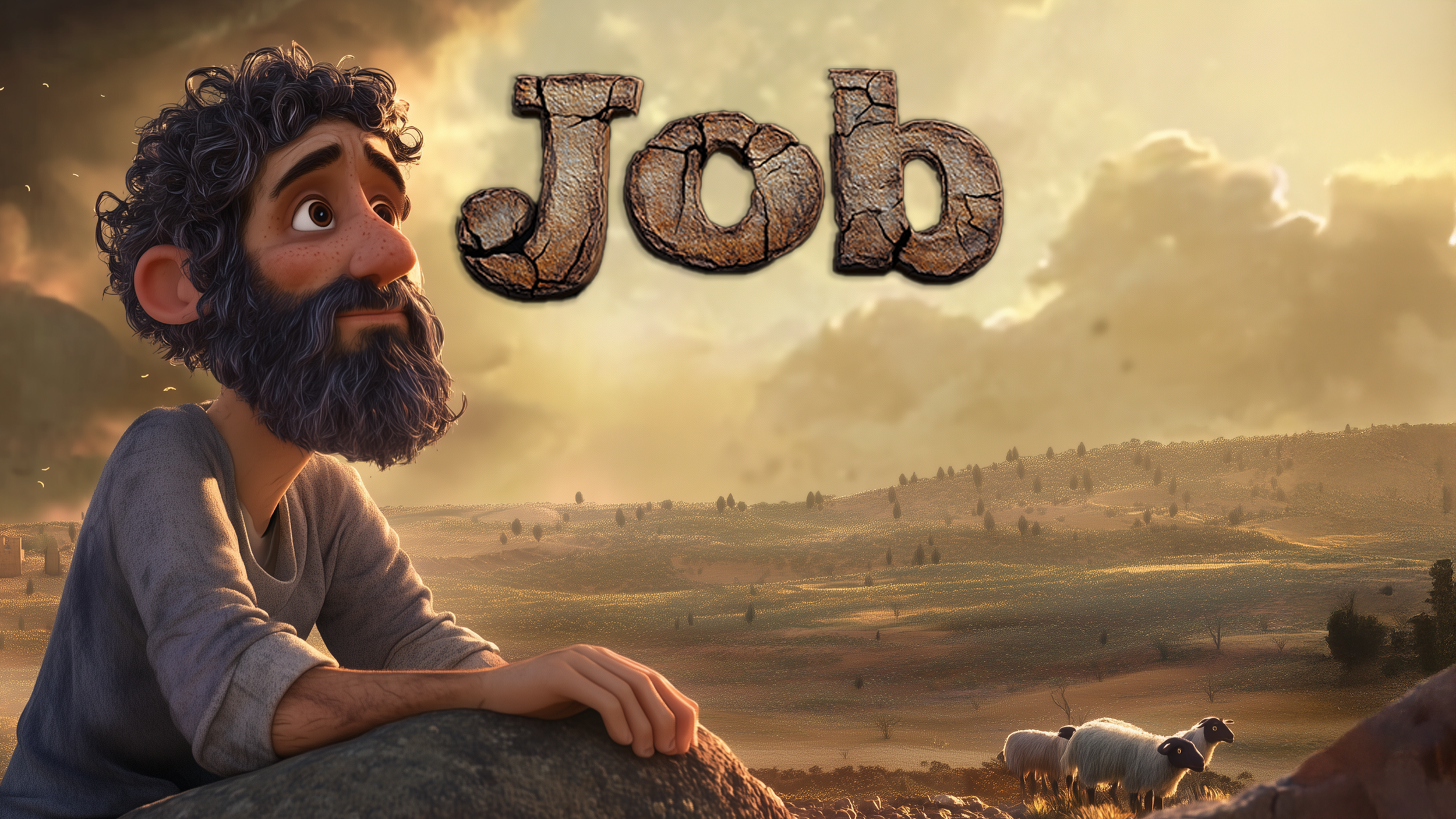Yet Will I Hope
READ
There's a raw honesty in today’s passage that takes your breath away. He's not speaking from a place of comfort or certainty. His body is covered in painful sores, his friends have turned into accusers, and his world has crumbled around him. Yet from this place of absolute desperation, Job makes one of the most profound declarations of faith in all of Scripture.
Let’s take a moment to read Job 13:13-16:
“Keep silent and let me speak; then let come to me what may. Why do I put myself in jeopardy and take my life in my hands? Though he slay me, yet will I hope in him; I will surely defend my ways to his face. Indeed, this will turn out for my deliverance, for no godless person would dare come before him!”
REFLECT
The phrase "though he slay me" isn't hypothetical for Job - it feels very real. He's experiencing physical agony, emotional torment, and spiritual confusion. Death might actually be a relief. But notice what Job doesn't say. He doesn't say, "I'll hope in God because He won't let me die." Instead, he says, "Even if He does let me die, I'll still hope in Him." This is faith at its most authentic - not dependent on outcomes, but rooted in God's character.
This kind of faith seems almost impossible to our modern minds. We're conditioned to believe that faith should make life easier, that trusting God guarantees favorable outcomes. But Job's declaration reveals a deeper truth: genuine faith isn't about controlling our circumstances through belief; it's about trusting God's heart even when His ways are mysterious and painful.
The word "hope" that Job uses here isn't wishful thinking or blind optimism. In Hebrew, it carries the meaning of confident expectation based on God's character. Job isn't saying he hopes things will work out the way he wants them to. He's saying he confidently expects God to be faithful to His nature, regardless of what happens to Job himself. This hope is anchored not in circumstances but in the unchanging character of God.
What makes Job's faith even more remarkable is that he speaks these words while actively wrestling with God. The second part of the verse reveals Job's intention to "defend his ways to God's face." He's not passively accepting his situation; he's engaging with God, asking hard questions, and seeking understanding. This shows us that faith and doubt aren't opposites - they can coexist. Job's hope in God doesn't prevent him from being honest about his confusion and pain.
This passage teaches us that mature faith isn't about having all the answers. It's about trusting God's heart when we can't understand His plan. Job doesn't know why he's suffering, and he doesn't pretend to be okay with it. But he refuses to let his circumstances define his relationship with God. His faith is bigger than his feelings, stronger than his confusion, and deeper than his pain.
Job's declaration also reveals the nature of genuine relationship with God. He's not relating to God as a distant deity who must be appeased, but as someone he can approach directly, even in disagreement. The phrase "to his face" suggests intimacy and accessibility. Job believes he can bring his questions and complaints directly to God, which is itself an act of faith.
This kind of faith is forged in the furnace of suffering, not in the comfort of prosperity. Job's declaration comes not from a mountaintop experience but from a valley of shadows. It's precisely because he's in such a dark place that his faith shines so brightly. He's discovered that hope in God isn't dependent on favorable circumstances but on God's faithful character.
For us, Job's example provides both comfort and challenge. It comforts us to know that we can bring our honest questions and struggles to God without losing our faith. It challenges us to examine whether our hope is anchored in God's character or in our desired outcomes. Job shows us that the deepest faith often emerges from the darkest circumstances.
RESPOND
Take a moment to process what God might be leading you to do in light of what you read.
How does Job's willingness to "defend his ways to God's face" change your understanding of what healthy faith looks like?
What would it mean for you to hope in God even in a worst-case scenario situation?
How can you cultivate the kind of faith that trusts God's character independent of your circumstances?
REST
Take a moment to rest in God’s presence and consider one thing you can take away from your time reading, then close your devotional experience by praying:
God, I confess that my faith is often dependent on my circumstances. Help me to develop the kind of hope that trusts Your character even when Your ways are mysterious. Give me courage to bring my honest questions to You, knowing that You can handle my doubts and fears. May my hope be anchored not in my desired outcomes but in Your faithful love. Amen.

